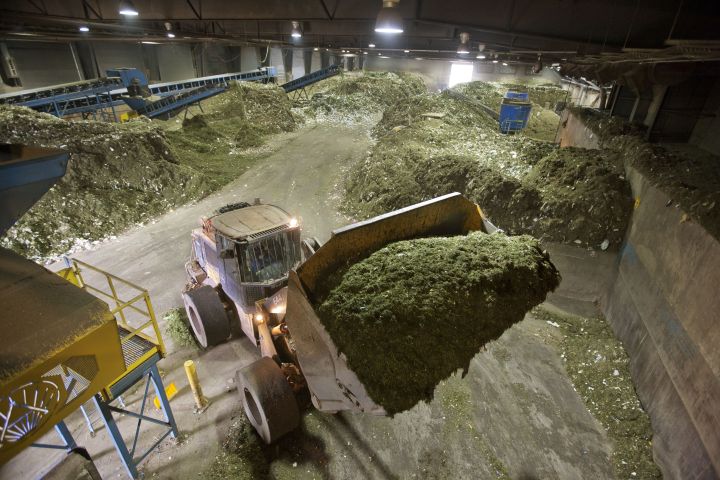By September, you won’t be able to put bagged grass clippings at the curbside any longer. You’ll either have to leave them on the lawn or compost them yourself.

The city began Friday to take the first step to massively change the waste management system.
City staff explained to council’s utilities committee that grass does a real number on the waste management facilities, and the hope of having you not include the clippings in your garbage will save a lot of money.
Mike Labrecque, the branch manager for the city’s waste management program said 50,000 tonnes of grass clog up the system every year, which means they’re mixed in with all of the other garbage.
“There are much more economical ways to process that material than running it through a $100-million machine,” he said about the need to divert what many horticulturalists say you should leave on your lawn.
READ MORE: Edmonton proposes changes to garbage separation and disposal
The big problem is, grass is 80 per cent water, so it’s too wet for the system and takes up too much space, said deputy city manager Doug Jones.

Get daily National news
“If you have grass going in there you can’t use the same capacity for sorting other products,” he said.
“Secondly, the moisture in the grass causes problems so right now our mixed waste has 30 per cent or more moisture in it on a daily basis and when it goes to Enerchem, they want something in the range of 14 to 20 per cent. So we either have to process it in different ways or dry it.”
Enerchem operates a bio-fuel system that is expected to come online later in 2018, after years of testing turning waste into fuel.
The grass ban is the first step of many that the city will lay out over the next few months. Councillors will be told about proposals to collect other yard waste only during a few weeks in the spring and fall at the height of gardening season.
READ MORE: Edmonton residents encouraged to go bagless when mowing
There will also be a plan to pilot a third waste stream of wet kitchen garbage to keep it away from the rest of the trash you’d put out each week.
It was part of the branch’s presentation that talked about changes over the next two years that will include a possible move to clear bags, the elimination of back lane pick-up and increased recycling for material like textiles.
“We will bring back a seasonal collection, we’ll bring back how we’re going to use the Eco Stations and what other options there are around it. That’s part of the program details we’ll bring back in June to the utility committee,” Labrecque said.
The changeover is expected to happen by 2020 after some tests in a pilot project next year.
- Donald Trump claims B.C.’s ‘very large faucet’ could help California’s water woes
- Canada must speed up progress to hit its 2030 emissions target: report
- U.S. TikTok ban case pits free speech vs. national security. Which will win?
- A final, tragic text from doomed Titan sub revealed at Coast Guard hearing
READ MORE: Edmonton’s long-praised waste management system struggling to divert 50% of residential garbage
Councillor Ben Henderson, who chairs the utilities committee, said Edmonton’s neighbouring communities are now separating their garbage into three streams.
“The original choice was made to get really high compliance from the public, to make it very simple for them, which is why we went with a two bag system. That really was cutting edge at the time but that’s an expansive process. I think people would like to keep the cost down and there’s a way to do it better and to make sure we get to even more diversion. We’ve said that we also want to get to 90 per cent diversion.”
The city wants to reduce the relative size of its operation so it can purchase smaller machinery at a lesser cost, as equipment at the waste management plant in north east Edmonton is getting to the end of its current life cycle.










Comments